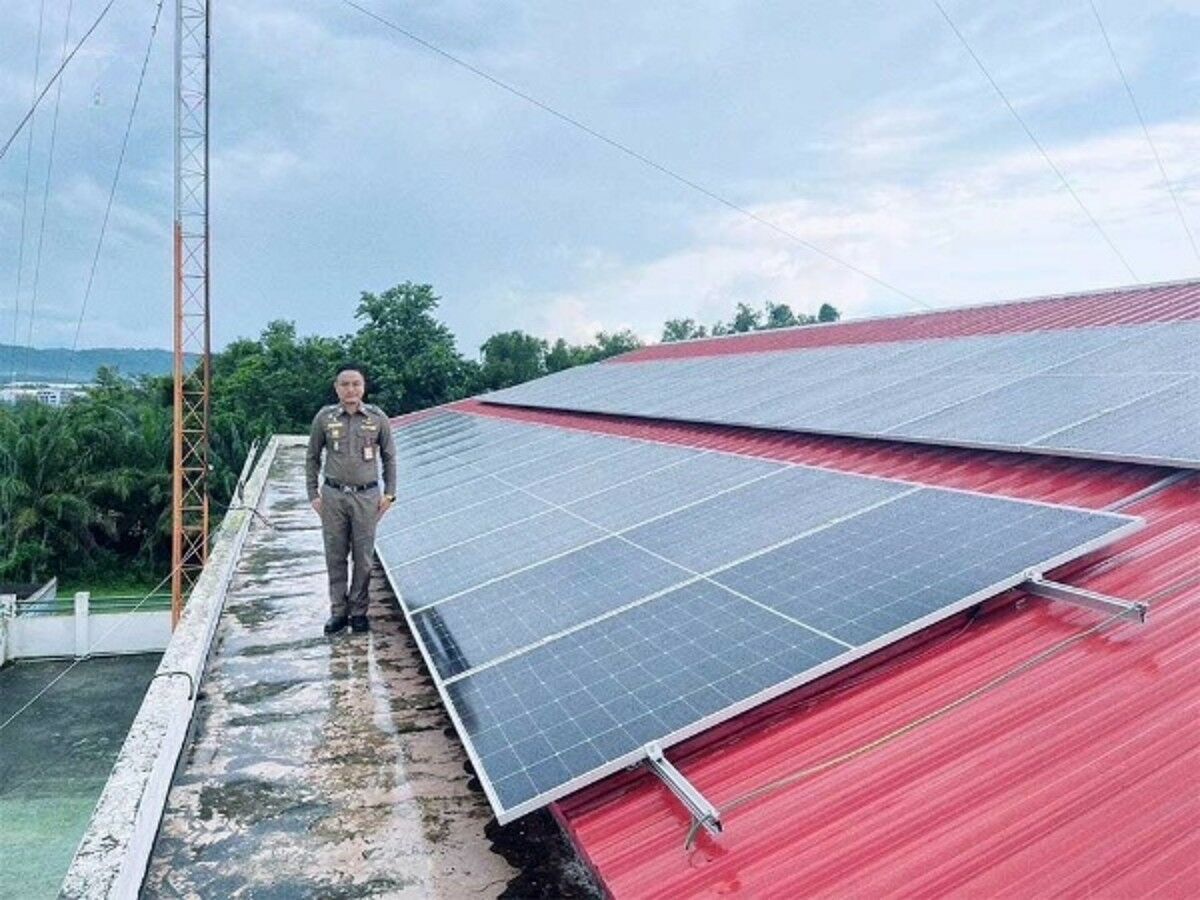Solar shockwave: Pattaya police slash bills with new power move

In a bold step towards a greener future, Nong Yai Police Station in East Pattaya has gone solar, slashing energy costs and setting a shining example for other public institutions. The station, now powered by an impressive 12-kilowatt solar system, is leading the charge in sustainable energy practices.
The eco-friendly setup includes a state-of-the-art 12-kilowatt Deye Hybrid Inverter, 28 solar panels, and two lithium phosphate batteries, providing round-the-clock power to the bustling station. With 24/7 operations to maintain, the switch to solar marks a significant reduction in the station’s dependence on traditional electricity sources.
Station chief, Police Colonel Krit Masuk, was quick to highlight the benefits.
“This initiative helps us cut energy costs while contributing to environmental protection.”
The system ensures the police station can continue its vital work, all while reducing its environmental footprint.
But this isn’t just about cutting costs—the police station chief emphasised the broader impact.
The station’s focus on energy efficiency showcases the potential for similar projects to be implemented across Thailand, bringing long-term savings and environmental benefits, reported Pattaya Mail.
In related news, the IEEE Power and Energy Society in Thailand is urging the government to expand its new tax reduction scheme for rooftop solar panel installations, aiming to boost the adoption of clean energy. Designed to offer tax incentives to 90,000 households from this year to 2027, the scheme is awaiting final approval within the second half of the year.
Households purchasing solar panels with a power generation capacity under 10 kilowatts and costing less than 200,000 baht are eligible, as per the Department of Alternative Energy Development and Efficiency.
In other news, China is leading the global surge in renewable energy construction, with nearly two-thirds of the world’s large-scale wind and solar projects currently being built within its borders, as indicated by a recent report from Global Energy Monitor (GEM).
Latest Thailand News
Follow The Thaiger on Google News:


























